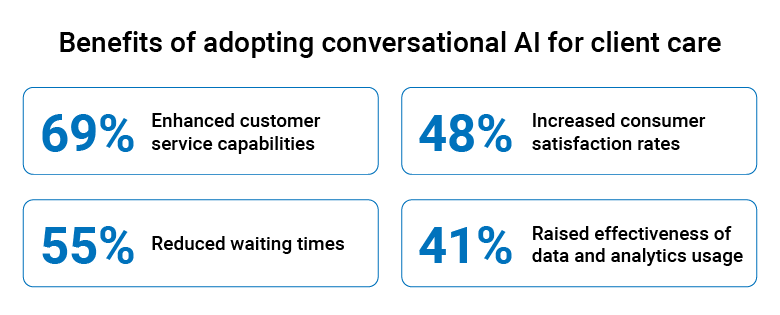Microsoft Copilot Studio: Build customized AI assistants
 Amit Bhagwani
Amit Bhagwani
Businesses have started adopting artificial intelligence (AI) in several operations. The technology is used widely and has several use cases that provide increased ROI to businesses. One such use case is AI assistants.

AI assistants have emerged as indispensable tools for businesses seeking to optimize efficiency, streamline operations, and foster innovation. These intelligent systems, powered by advanced AI technologies, offer a myriad of benefits—from automating repetitive tasks to providing data-driven insights and enhancing collaboration across teams.
Microsoft Copilot Studio stands at the forefront of this transformation, empowering organizations to harness the full potential of conversational AI. It enables you to build customized copilots (AI assistants) tailored to your specific business needs.
In this blog, we will explore more about Copilot Studio, how it works, real-life use cases and its benefits.
What is Microsoft Copilot Studio?
Microsoft Copilot Studio is an advanced AI assistant platform designed to help you build intelligent conversational AI assistants. You can create copilots for your Microsoft environment. This enables you to automate tasks, generate insights, and streamline workflows across Microsoft’s suite of applications.
This large language model-driven tool also empowers you to build your own copilot tailored to specific business needs. It enhances the AI assistant’s ability to quickly answer queries by leveraging internal knowledge and data sources.
What can you do with Microsoft Copilot Studio?
Copilot Studio offers myriads of capabilities designed to enhance business operations, streamline workflows, and drive innovation through AI-powered automation and customization. Here’s what you can achieve with this powerful platform:
AI chatbot development
Create your own copilot using ready-made large language models and a dialog manager.
Design chat experiences that understand and respond to complex queries, providing users with accurate and helpful information.
Extensive connectivity
Access over 1,200 prebuilt data connectors to integrate with various Microsoft and non-Microsoft applications.
Seamlessly connect your copilot to line-of-business (LOB) applications, ensuring smooth data flow and integration across systems.
Custom AI assistants
Develop AI assistants tailored to assist with complex cognitive tasks using your organization’s knowledge.
Design custom topics and scenarios to address unique business challenges and improve operational efficiency.
Enhance data-driven decision making
Integrate with Azure AI Studio and other Azure services to configure, train, and connect advanced AI models.
Utilize AI analytics to derive actionable insights from large datasets, supporting informed decision making across the organization.
Optimize performance and scalability
Eliminate the hassles of infrastructure management, maintenance, and updates, ensuring peak performance for your copilot.
Monitor and optimize copilot responses with built-in analytics and key performance indicators (KPIs).
Customizing Microsoft Copilot for Microsoft 365
Design Copilot extensions with prompts that allow easy access to your organization’s business data where it’s needed most. Whether it’s financial metrics, customer information, or operational insights, Copilot can extract relevant data quickly to support informed decision making.
Create customized conversations tailored for predictable scenarios such as compliance or regulatory topics. By configuring Copilot to provide specific responses based on predefined rules and guidelines, organizations can ensure consistency and accuracy in handling sensitive information and regulatory requirements.
Navigate the intricacies of business processes effortlessly by automating complex tasks with Copilot. Copilot can streamline workflows, reduce manual effort, and improve operational efficiency.
Enhance Copilot’s functionality within Microsoft 365 by building custom plugins using prebuilt connectors. Integrate seamlessly with popular applications like Salesforce and ServiceNow to leverage existing data and functionalities, expanding Copilot’s capabilities and enhancing collaboration across teams.
Various use cases of Microsoft Copilot Studio
Build copilot for IT support
Technical assistance: Create a copilot specifically designed to provide technical support to employees or customers. This AI assistant can handle common IT issues, troubleshoot problems, and guide users through complex technical processes.
Ticket management: Integrate with IT service management tools to automatically create, update, and manage support tickets, ensuring efficient resolution of technical issues.
Knowledge base integration: Access and utilize your organization’s IT knowledge base to provide accurate and timely solutions to common technical problems.
Customer service chatbot development
Product recommendations: Develop a copilot that helps customers navigate through your product offerings. Provide personalized recommendations based on their preferences and requirements.
Customer inquiries: Assist customers with their inquiries by providing detailed information about products, services, and policies, enhancing the overall customer experience.
Order assistance: Guide customers through the purchasing process, including order placement, tracking, and returns, ensuring a seamless shopping experience.
Copilot for supply chain management
Order tracking: Implement a copilot that helps suppliers track the status of their orders, providing real-time updates on order processing, shipment, and delivery.
Supplier communication: Facilitate communication between your organization and suppliers, ensuring timely responses to inquiries and efficient resolution of issues.
Inventory management: Integrate with inventory management systems to provide suppliers with insights into stock levels, reorder points, and demand forecasts, optimizing supply chain operations.
Real-life use cases of Microsoft Copilot Studio
PayPal
This American multinational financial tech company majorly operates in online payments. They leveraged low-code AI chatbot development services offered by Copilot Studio to build employee facing copilot. The conversational AI chatbot connects with multiple knowledge sources and provides consistent and relevant answers. This enables PayPal to reduce the workload and costs of their support team.
HP
HP uses Copilot Studio to provide product recommendations for their clients. Customers can use natural language to search information on HP’s products. The copilot will have generative AI capabilities that will offer instant access to product insights.
An Post
An Post is a state-owned provider of universal postal services based in Ireland. They used Copilot Studio for chatbot development. The copilot offers answers to customer queries and enables them to track their packages. This improves efficiency of both An Post and its customers.
Microsoft Copilot Studio and generative AI
Copilot Studio for M365 isn’t specifically designed with generative AI capabilities. However, there is a separate license if you’re interested in developing custom copilot with generative AI. You can build custom copilot and publish it on any channels, such as websites, SharePoint sites, social media, and more. This can be used for both customer as well as employee facing conversational AI assistant. You can even build copilot with specific rule-based dialog for better control.
Get started with Copilot Studio
By leveraging Microsoft Copilot Studio, organizations can unlock new levels of efficiency, productivity, and innovation. You can automate complex tasks, enhance data-driven insights, or ensure compliance. Copilot Studio enables you to develop conversational AI for your unique business needs.
Softweb Solutions has certified Microsoft developers who can help you accelerate your copilot development journey. Our AI chatbot development services empower businesses to achieve their goals and stay competitive in today’s dynamic market. Contact our AI experts to discuss your business needs.
Subscribe to my newsletter
Read articles from Amit Bhagwani directly inside your inbox. Subscribe to the newsletter, and don't miss out.
Written by
